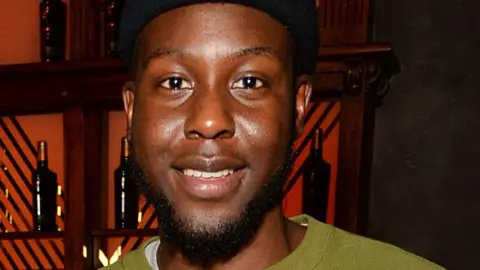Rethink: Caleb Femi says 'creative thinking' is key to students' future
 Shutterstock
ShutterstockCaleb Femi, the first young people's laureate, says students must think creatively to secure a better future. He says that with the cancellation of this summer's major exams because of coronavirus, relying on the existing education system may no longer be the best option for future progress.

The British education system has covered itself in a veil for centuries. The veil is the promise that at the end of the road of education, there is security and even prosperity.
We are told to trim the fat of our potential. Students turned up every morning for 39 weeks a year. They studied and they learned for tests and they sat those tests.
They shrank their imagination and the autonomy of the learning process because there was that promise that you leave with a qualification, an emblem that said you were a capable member of society. This was the veil.
But Covid-19 was the storm that tore that veil apart for most students in the UK.
When the lockdown was imposed, schools had to close and students taking A-levels and GCSEs, as well as some from Years 9 and 10 in the middle of exam prep, were told that they wouldn't be able to take their tests.
Imagine that, after years of classroom exercises, homework, coursework, mock tests, parents' evenings and sacrificing so much because of that promise of a qualification, of security.
Instead your worth, the value of your qualification, your supposed future prospects are going to be based on a calculation of what is called your predicted grade.
Take note that statistically, black students are under-predicted and generally exceed their predicted grade in their real exams.
So what many students learn during this lockdown period is that society is an uncertain landscape. Job sectors are volatile, and then they begin to question themselves. They question the tools that they have to be able to survive in the wild that is adulthood.
You don't have to be David Attenborough to know that the absolute that is security does not exist in nature. The ones who survive, the ones who thrive, are the ones who have the tools and the skills to adapt.
So, as a student you then question yourself - do I have the tools that are required to survive in this society? These tools are problem solving, creativity innovation, the autonomy to envisage a new possibility and a new future.
Also, the mental dexterity to make careers for yourself and make society a more efficient place, a more equal place for everyone. Tools that you need to have to survive in such an uncertain landscape don't match up.
Going forward, it means that it's ultimately a job for you, the individual, alongside the community, to think in ways that put you in the driving seat of your own learning.
New approaches need to be made where students are encouraged to think creatively, to exercise their imagination, to problem-solve in unique, innovative, exciting ways. That is what a post-lockdown relationship should look like.

BBC Radio 4, Radio 5 Live and World Service have come together for a unique collaboration: BBC Rethink. It asks how society and our lives can change for the better after the Covid-19 crisis.
You can hear the BBC Rethink episodes on BBC Sounds.
Read the other essays:
- The Pope talking about poverty
- Author Tara Westover on people coming together
- Sleep scientist Matthew Walker on rest during lockdown
- Writer Lucy Jones on why people are falling back in love with nature

